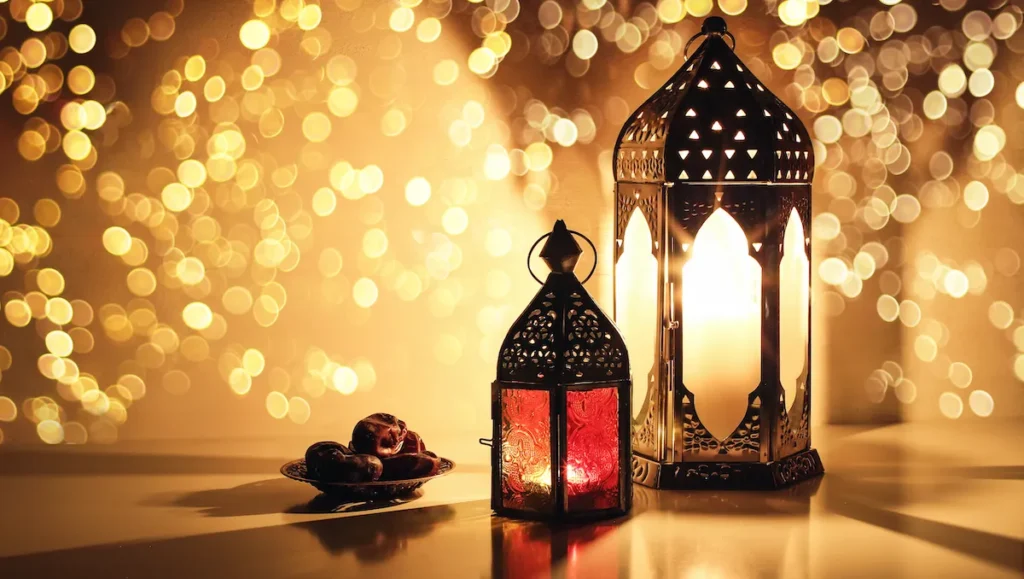Ramadan, the ninth month of the Islamic calendar, is a time of fasting, spiritual reflection, and charity for Muslims worldwide. It culminates in Eid ul-Fitr, a joyous festival marking the end of fasting.
This article examines the significance of Ramadan and Eid ul-Fitr.
Ramadan is the holy month of obligatory fasting for Muslims, as mentioned in the Quran, Islam’s holy book. It is the month during which the Quran was first sent down as guidance for mankind, containing clear proofs of divine guidance and the criterion for distinguishing between right and wrong.
Muslims believe that the first verses of the Quran were revealed to the Prophet Muhammad (Pbuh) during Ramadan.
Throughout this sacred period, Muslims are encouraged to fast and give charity, to show kindness, patience and strengthen their relationship with Almighty God (Allah).
In Surat Al Baqra, 2:185, it is stated that God intends for you ease and does not intend for you hardship and [wants] for you to complete this period and to glorify God for that [to] which He has guided you, perhaps you will be grateful In this verse, God in the Quran describes Ramadan as a month of charity, spiritual guidance and ease.
Why do people fast during Ramadan?
Fasting during Ramadan helps Muslims develop self-control, discipline and patience. It is a time to reflect on one’s actions, repent, and seek forgiveness from Allah. Muslims believe that fasting helps purify the soul and brings them closer to Allah.
Ramadan is divided into thirds, known as Ashras, and the first ten days are those which signify mercy, the second for forgiveness, and then the third for freedom from the Hellfire.
As Muslims settle into their routine during Ramadan, they believe that showing mercy to others can increase the mercy of Allah (SWT) upon them.
Immense spiritual value
The last ten days of Ramadan are highly significant in Islam due to their immense spiritual value. They are a time of intensified worship, as Muslims seek Laylat ul-Qadar (Night of Power), believing these days hold exceptional blessings, and higher chances of divine acceptance of prayers and deeds.
The Holy Night of Laylat-ul-Qadr, also known as the Night of Power, Night of Decree, or
Night of Destiny incites a thousand months’ worth of rewards in a single night.
If one performs any acts of goodwill on this night, they reap the rewards as if they had performed the good deed for a thousand months (83 years).
Laylat-ul-Qadar is found in the last ten days of Ramadan, especially the odd days.
While laylat ul-Qadar is considered the best night of Ramadan, the last Friday of Ramadan, known as Jumu’atul Wida, is also significant. According to Islamic history, on this day, Hazrat Suleiman (AS) founded the city of Jerusalem and established the first qibla of the Muslims, the masjid Al-Aqsa.
Then comes Eid, which means ‘feast, festival, holiday’ in Arabic.
During the calendar year, Muslims celebrate two Eids.
Eid ul-Fitr, also known as Eid al-Fitr, is a festival that marks the end of the holy month of Ramadan, in which Muslims fast for a whole month. It starts with the first sighting of the new moon.
The second Eid, Eid ul-Adha, or simply the Festival of Sacrifice, celebrates Prophet Ibrahim’s willingness to sacrifice his son as an act of obedience to God. It is observed on the 10th day of Dhu al-Hijjah, the twelfth month of the Islamic calendar.
During this festival, Muslims slaughter domestic animals and share the meat with family, friends and the less fortunate members of the society.



